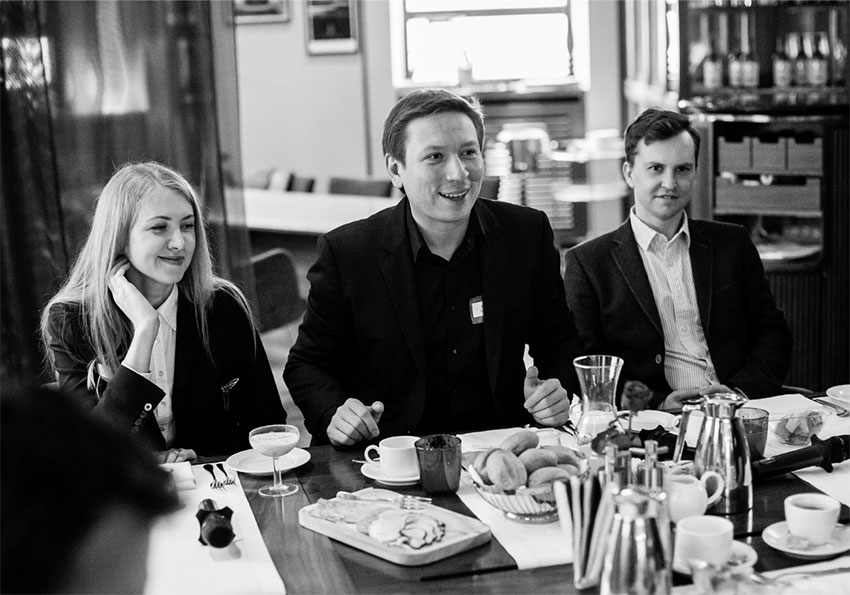What happens if you gather together a few large retailers for an informal breakfast without neckties and microphones?
This is the central idea of the Retail Meetups, a set of events for retailers that use or are going to use innovations and new retail trends to grow faster and move the industry towards new horizons.
On April 26, the representatives of Allo, Vodafone, Rozetka, Intertop, Delonghi, Allsoft, Cosmo, Deloitte and Epicentr gathered in Kiev at the same table. They shared their experience in implementing technological solutions for logistics, stock forecasting, algorithmic pricing and others. They also talked about the results of their internal and publicly inaccessible research.
From margin and discounts to the eCommerce robotization
The discussion was moderated by the commercial director of the Foxtrot network, Tatyana Moiseenko, and Competera experts Nikolai Savin and Vladimir Kuchkanov (in the photo). The guests offered their ideas for discussion: from the classic question “Do we need these discounts?” to artificial intelligence and trends of 2023.

We promised to all participants everything would be off-the-record and confidentially, so let's talk about the meeting in general terms.
How does an omnichannel change?
Omnichannel retailing is not a question of the same prices offline and online, it’s the ability to organize the management of many channels from a single center. Although in Ukraine this trend is only beginning to emerge, in Western Europe and the United States it is gradually being phased out: it has not been possible to prove that omnichannel strategy positively influences the perception of the shop by buyers.
Personalization, club offers and memberships
In retail, hyper-personalization is gaining popularity. It is important for the modern buyer that the offer corresponds as much as possible to his needs (even to those ones he does not even realize he has yet).
Most large retailers have already launched their paid, “shopping clubs” (the simplest example is Amazon Prime), in which buyers receive interesting personalized offers: from subscriptions to services to unique prices for high-value product groups.
Ukrainian retailers inherit this trend, and start using mobile applications to target bids. At the same time, offline stores “beat” the eCommerce: the big three (Auchan, Metro, Varus) already sends hyper-personalized offers to customers via mobile applications.

Sergey Batritdinov, Intertop CEO
Static segmentation does not work
Segmentation of the audience into 5-20 segments once a quarter is a story from the retail of the past. A new type of customer is difficult to segment. He has a mosaic mindset (chaotic perception of information), and he can belong to several segments at once, depending on the situation.
A target audience can consist of 100 thousand segments, and an ordinary person can not cope with with so many variables. Neural networks come to aid here, which segment the buyers with certain characteristics according to the given algorithms and adjust the offer of the retailer.
Theory of probability and algorithmic marketing
The sales volume is affected by hundreds of factors. To forecast sales and make business decisions based on large data and formulas, it is important to use algorithms. Do not rely on expert opinion alone. The necessary data and the technologies to work with it are already available to modern retailers.
This is how algorithmic marketing works: when the marketing indicators are changed (the behavior of buyers on the site, the activity of competitors, the change in market share), the algorithm adjusts the advertising campaigns.
More questions
- What prevents market participants from applying progressive new principles in retail management?
- If omnichannel is not trending anymore, what will be important in 5 years?
- Is it worth using artificial intelligence or other innovations, if they can quickly lose their efficiency?
- How can one deal with the opposition of the company stuff to the implementation of new more effective solutions that force people to change?
The purpose of the Retail Meetup events is to find the answers to these and many other questions and build a strong retail community.






